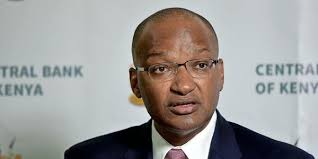
Ex-IMF official turns foe at Kenya Central Bank
Central Bank of Kenya Governor Patrick Njoroge is closing the year having broken ranks with former employer, the International Monetary Fund (IMF), even as he is expected to apply the multilateral lender’s policies in the monetary sector.
At the time he was appointed the governor, one of the first issues that arose was that he was beholden to IMF strait-jacket policy framework having worked there for decades and carried out reviews the institution normally does on members.
But Dr Njoroge recently said the shilling is, on broad terms, properly valued even as the IMF insisted that it is overvalued by as much as 18 percent – effectively advocating for the country to devalue the currency to achieve some economic aims that it did not clearly define.
However, devaluing a currency has been associated with beggar-thy-neighbour policies, which means a country’s exports become cheaper in the eyes of overseas buyers just at the same time as it is making imports expensive and therefore discouraging them. This normally has an adverse effect on neighbouring or partner trading countries including the possibility of pauperising them.
Several years ago, a World Bank report had also termed the Kenyan shilling as artificially strong, concluding that it was 34 percent overvalued, putting the country’s economic situation out of balance.
Dr Njoroge had also been expected to be strict with control of inflation by adopting the targeting framework recommended by the IMF but which – within Africa – has been adopted by only South Africa and Ghana, which are both resource-rich.
The inflation targeting framework works in a manner that gives little room for deviation from the set number, giving less flexibility on control of other measures.
For resource-poor countries, it may also require huge strategic reserves of oil and food – which contribute the largest portion in the CPI calculation.
It also requires development of an interest corridor, in which interbank rates remains within certain levels, but which is not yet in place.
Though Dr Njoroge has been reluctant to address the matter publicly, the CBK has made little progress towards the framework.
There have been several studies, some inconclusive, of the inflation targeting framework but a 2016 study by Andrew Phiri of the University of Western Cape concluded that African countries that adopted inflation targeting had been able to reduce persistence of inflation by 40 percent while those that had not adopted the regime saw persistence increase by 290 percent between 1994 and 2014.
Perhaps, Dr Njoroge’s independent stance should not have been surprising given that he initially declined a State offer of a posh house in the upmarket Muthaiga and opted for a simple lifestyle in shared church premises.
Credit: Nation.co.ke https://www.nation.co.ke/business/IMF-official-turns-foe-at-the-central-bank/996-4910044-mbn1s4/index.html